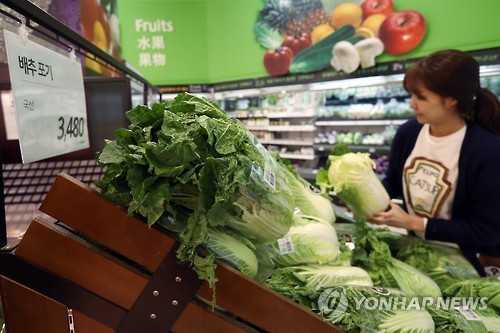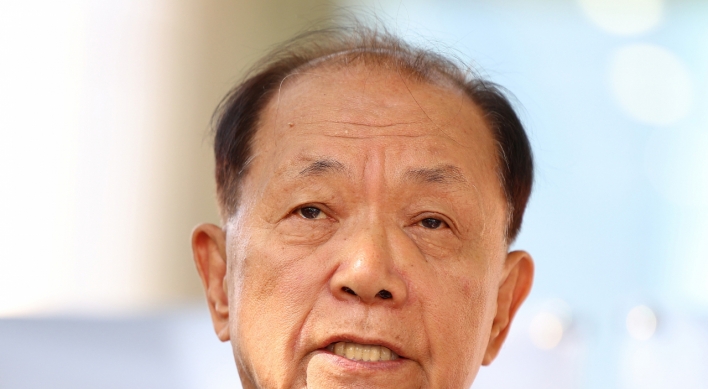South Korea's consumer prices rose more than 1 percent for the second consecutive month in October amid concerns over potential deflation in Asia's fourth-largest economy, government data showed Tuesday.
The country's consumer price index rose 1.3 percent last month from a year earlier, marking the highest monthly gain since February, according to the data compiled by Statistics Korea.

The index stayed over the 1 percent level for the second straight month, following a growth of less than 1 percent between May and August and 1.2 percent in September.
From a month earlier, the index edged down 0.1 percent in October.
Core inflation, which excludes volatile oil and food prices, increased 1.6 percent compared with last year, down 0.2 percentage points from the previous month's on-year gain.
The statistics agency said higher grocery prices contributed to the uptick in consumer prices as agricultural production was hit hard by scorching heat and a typhoon during the summer period.
Prices of farm products jumped 10.3 percent last month and those of meat rose 6.1 percent. In particular, prices of Chinese cabbage, the main vegetable for the Korean traditional side dish of kimchi, shot up 143.6 percent on-year, while radishes and tomatoes, surged 139.7 percent and 48.8 percent on-year, respectively.
"Prices of agrofisheries went up higher due to the bad weather conditions like the record-breaking heat wave and typhoon," said Woo Young-jae, director of the price statistics division at the statistical bureau. "A shortage of cabbages and other fresh vegetables is expected to last for a while as the temperature goes down."
He said the end of a temporary reduction in public utility bills also lent support to the overall increase in the consumer prices index.
The South Korean government gave a temporary electricity price cut for the July-September period in a way to ease financial burden of households during the sizzling summer.
As a result, the price index for gasoline and electricity rose 9.9 percent from a month earlier, although it fell 8.2 percent from a year ago.
The price index for service bills like rent and health care fees also advanced 1.8 percent on-year.
The finance ministry expected that the price index will stabilize to some extent as the downbeat pace of global oil prices has been slowing in recent months.
"Consumer prices will face eased downside pressure on a slower decline in oil prices than the previous year," the ministry said in a release. "The government will keep close tabs on the prices of agricultural products and other livelihood items in a run-up to the winter season." (Yonhap)







![[KH Explains] No more 'Michael' at Kakao Games](http://res.heraldm.com/phpwas/restmb_idxmake.php?idx=644&simg=/content/image/2024/04/28/20240428050183_0.jpg&u=20240428180321)










![[Herald Interview] Mistakes turn into blessings in street performance, director says](http://res.heraldm.com/phpwas/restmb_idxmake.php?idx=652&simg=/content/image/2024/04/28/20240428050150_0.jpg&u=20240428174656)
